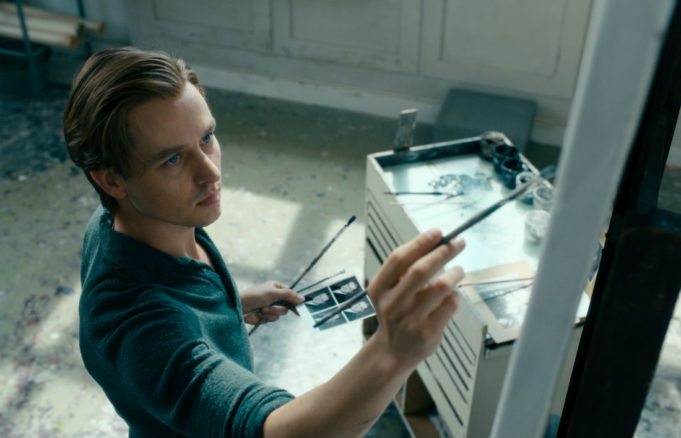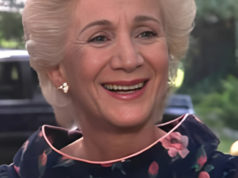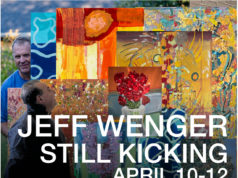Between the Modern Cinema Festival and other screenings I attended for the Weekly, I’ve basically been watching movies for the past four days straight, so forgive me if this recap is a bit punchy. This festival had gone on hiatus since Christopher Kelly moved to New York in 2014, but it came back this year to show us how much we’d missed.
One common thread in these festivals at the Modern is a food movie, because Kelly is a sucker for a chef documentary. (Conveniently, so am I.) Cameron Yates’ Chef Flynn chronicles the life of Flynn McGarry, the teenage chef who wasn’t just re-creating dishes from the French Laundry at age 11 but putting his own innovations on them. He and his filmmaker mother Meg McGarry take turns narrating how he navigates the press coverage that accompanies his rise to fame and eventually getting his own restaurant in New York. Flynn is a charming protagonist who plates up food quite attractively, and the movie made me want a sous vide-cooked steak with a mushroom polenta and a blackberry-red wine reduction like the one Flynn made when he was 12.
Kelly also typically programs at least one film about world events that’s dry and self-important, and this year it was A Private War. Then again, maybe dry and self-important is just how all of Rosamund Pike’s films are these days (Beirut, Seven Days at Entebbe). She does a good impression of Marie Colvin, the war correspondent who reported from the world’s most dangerous places even after losing an eye. Still, this portrait of the combat reporter as a hard-drinking, PTSD-suffering adrenaline junkie didn’t tell me much that I didn’t know.
Olivier Assayas’ Non-Fiction didn’t do much for me, either. The story of a publisher, a novelist, and their wives wound its way through long discussions about the future of the printed word in the digital age. This subject interests me, but all the talk among privileged white people in nice houses got to me, though the script has a funny Taylor Swift joke. I like Assayas, but I seem to like his movies better when they have Kristen Stewart in them. IFC Films provided both his movie and Wildlife, about a 14-year-old boy (Ed Oxenbould) watching his parents (Jake Gyllenhaal and Carey Mulligan) break apart in 1960 Montana. Mulligan really is tremendous as this frustrated housewife who makes a bevy of bad choices, but I found myself wanting a bit more fireworks. First-time director Paul Dano goes a little too heavy on the restraint, though he does fold the corners neatly as he tells this story. The Montana scenery looks good, too.
Boy Erased is based on the memoir by Garrard Conley, about his struggles growing up gay, Christian, and a pastor’s son in Arkansas in the early 2000s and being forced to undergo gay conversion therapy. I can’t fault the performances by Lucas Hedges as Garrard’s alter ego and Russell Crowe and Nicole Kidman as his parents. The director is Joel Edgerton (who also plays the pastor running the gay-conversion camp), and I liked his first directing effort, The Gift. For all that, the thing felt a bit dutiful and by-the-numbers.
I saved the best for last here, as two films at the festival are likely to pop up when I make out my annual list of the year’s best movies. Having won two Oscars for movies he made in Iran (A Separation and The Salesman), Asghar Farhadi went to Spain to make a movie in a similar vein called Everybody Knows, and it’s my favorite one of his. Penélope Cruz (who gives a great, anguished performance) plays a Spanish expat in Argentina who returns home for her sister’s wedding, only for her teenage daughter to mysteriously disappear during the reception. Decades-old grudges and myriad plot twists turn up as the family, including the mother’s ex-boyfriend (Javier Bardem), try to track down the missing girl. The other gem I found was Never Look Away, a German historical epic loosely based on the biography of Gerhard Richter. The movie is a look at the career of a young artist from boyhood to success, but it also takes in the sweep of German history from pre-World War II to the 1960s, and it’s the best movie I recall about a visual artist. It’s three frickin’ hours long, but director Florian Henckel von Donnersmarck (who won an Oscar for The Lives of Others) makes it all fly by.
Great experiences make a film festival stick out in my memory, and this one gave me two. Lone Star Film Festival looks to have stepped up its programming this year with some Oscar contenders of its own. I’ll be eager to see how it does, and I’ll report back in this space.












